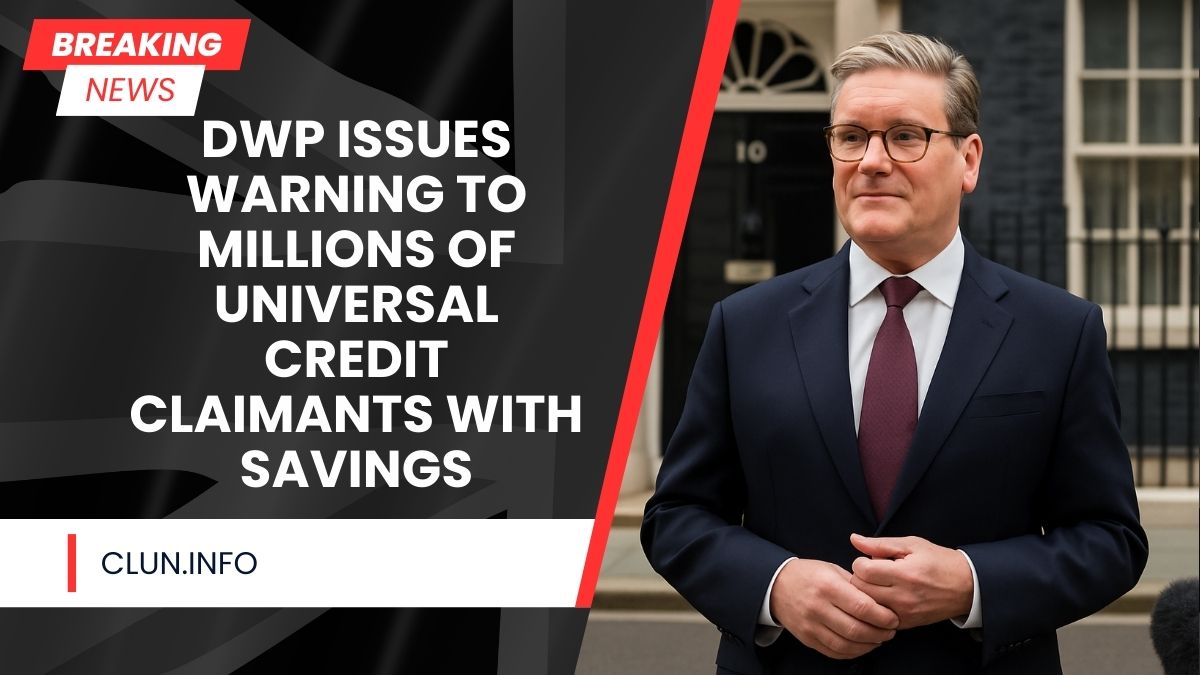The Department for Work and Pensions (DWP) has outlined the precise savings limits for Universal Credit claimants, revealing how having savings, money, and investments above a certain threshold can reduce benefits.
If you have over £6,000 in savings, your Universal Credit payments will decrease. Specifically, for every £250 you have between £6,000 and £16,000, your benefit is reduced by £4.35.
How Savings Affect Universal Credit Payments
For those with savings that exceed £6,000 but don’t exactly hit the £250 increment, deductions are calculated accordingly.
For example, if you have £6,300 in savings, the first £6,000 won’t affect your Universal Credit, but the remaining £300 will lead to a deduction of £8.70. This breakdown would look like this:
- £4.35 deducted for the first £250
- £4.35 deducted for the remaining £50
This process reflects how the DWP assesses your total savings and investments when determining your Universal Credit entitlement.
What Counts as Savings and Investments?
The DWP includes a wide range of assets when calculating your total savings for Universal Credit purposes. Here’s a detailed list of what is considered as capital:
- Cash and money held in your bank accounts (including main accounts, current accounts, and digital-only accounts like PayPal)
- Savings accounts such as those held in banks, building societies, credit unions, and other savings platforms like Help to Save, Post Office accounts, and NS&I accounts
- Money that is saved for children, or for specific purposes like essential building work (unless it’s from a grant or loan), medical care, or even business assets from a company that closed more than six months ago
- Individual Savings Accounts (ISAs), including cash ISAs, stocks and shares ISAs, Innovative Finance ISAs, Help to Buy ISAs, and Lifetime ISAs
- Premium Bonds, stocks, shares, and even cryptoassets
- Property that you own but do not live in, in certain cases (except under specific circumstances)
- Overseas assets, including property, land, and savings abroad
- Inheritance payments and money in trust funds (with some exceptions)
- Unspent benefits, such as Child Benefit, PIP, and DLA
However, the DWP does not take into account your debts when calculating your total savings and investments for Universal Credit eligibility.
Understanding how your savings and investments are calculated is crucial for anyone claiming Universal Credit. If your savings exceed £6,000, it’s important to be aware of the deductions that will impact your payments.
The DWP considers a broad range of assets, from cash to investments like ISAs and Premium Bonds, in their assessment.
FAQs
How much savings can I have before my Universal Credit is affected?
You can have up to £6,000 in savings before it starts affecting your Universal Credit. Between £6,000 and £16,000, your payments will be reduced by £4.35 for every £250.
Does the DWP consider debts when calculating Universal Credit payments?
No, the DWP does not include your debts when working out your total savings and investments for Universal Credit.
Do foreign assets affect my Universal Credit entitlement?
Yes, the DWP includes overseas assets such as property, land, and savings in their calculation of total savings for Universal Credit eligibility.




